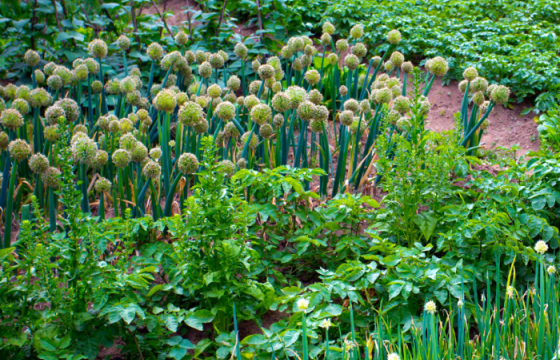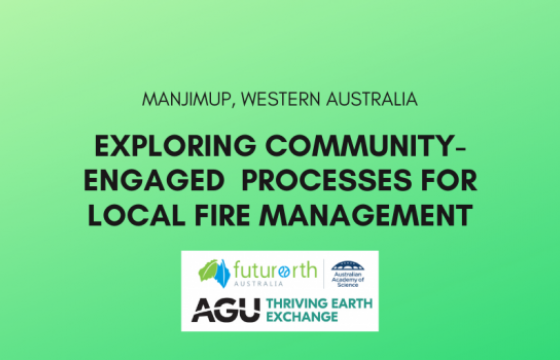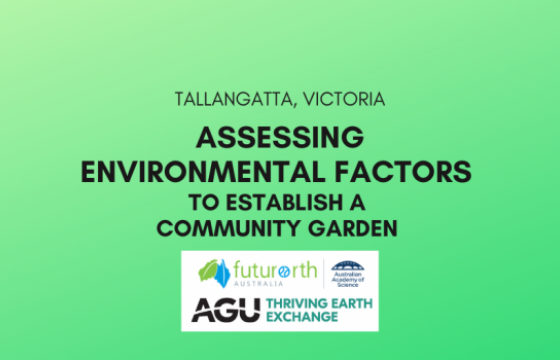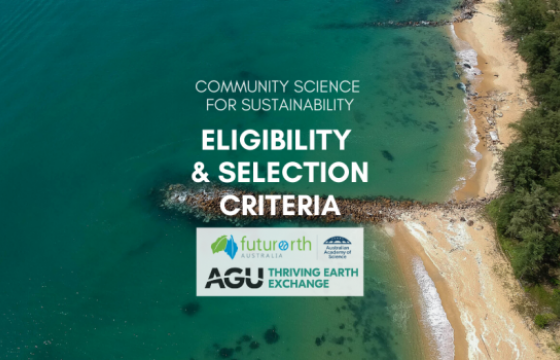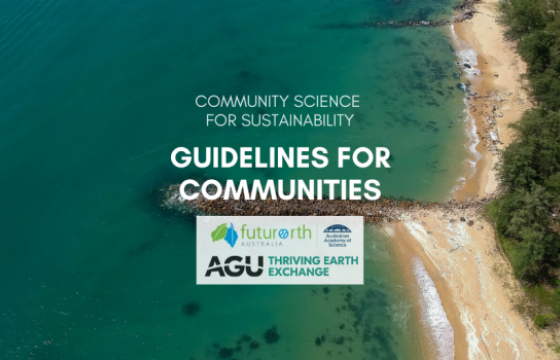Community Science for Sustainability
Future Earth Australia has partnered with the American Geophysical Union’s (AGU) Thriving Earth Exchange to convene and support a series of community science projects for sustainability.
What is Community Science?
Community science is the process by which scientists and communities do science together as equal partners to advance one or more community priorities. Community Science is designed to make a tangible local impact. It prioritizes capacity building for communities to help them manage long term risks associated with climate hazards and broader resilience challenges.
It encourages communities to guide, participate in, learn from, and benefit from science. Community science is also a means for researchers to learn how their specialised knowledge is required in application by communities, guiding research and knowledge-building priorities. It is a place-based model which ensures that science - and scientists - are responding directly to sustainability priorities articulated by communities themselves.
When done well, it can enhance community capacity, advance equity, enrich scientific practices, diversify the sciences, address global challenges, and build public trust and support for science. In this context, “science” is understood to be an inclusive suite of activities (encompassing research, engagement, education, synthesis, and application) nested in a range of intersecting sets of skills, expertise and ways of knowing with diverse cultural roots. We invite you to review the Thriving Earth Exchange Statement on Integrity in Community Science for greater insight.
Communities know their sustainability priorities best. Future Earth Australia facilitates communities and scientists to co-produce actionable science which addresses a local or regional concern. Tapping our extensive network of research partners and pairing it with our experience in managing projects across different parts of society, Future Earth Australia will deliver actionable science for communities’ sustainability priorities. We will also share this high-quality research back into the academic, policy and practice communities to enhance sustainable practice and learning in other contexts.
Working with as a scientist or specialist in a community science project is an opportunity to leverage your science for good, learn new skills, develop new friends and colleagues, and expand your notion of what it means to be a scientist. Community scientists/specialists are people at any career stage who offer their technical skills and expertise to help communities tackle their most pressing problems.
Future Earth Australia will be facilitating community science projects by collaborating with Thriving Earth Exchange, whose model has been exceedingly successful. For a comprehensive overview of the mission and practice of community science, visit the Thriving Earth Exchange website.
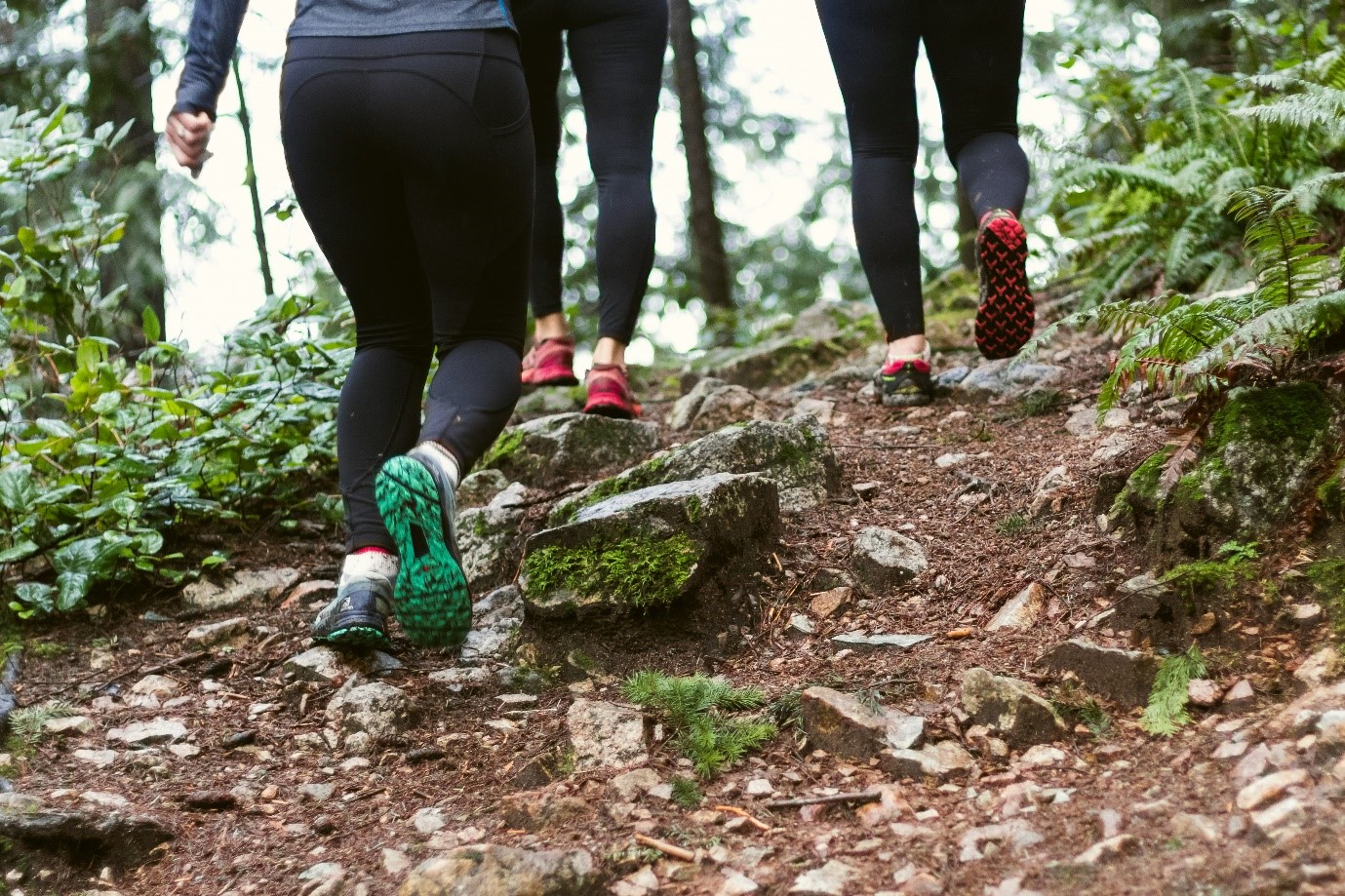
Current Projects
Opportunities for Involvement
There are a range of opportunities for communities, scientists and specialists, and the public to get involved with community science.
Scientists, researchers, and specialists:
We are currently seeking a researcher to work on the following project (supervised by pro-bono specialist in community-led natural resource management):
- Warren Catchments Council, Manjimup WA - exploring community-engaged processes for local fire management in a warming world.
We maintain a database of specialists, scientists and researchers who are interested in contributing their skills in future. If you would like to be added to this list, please email futureearthaustralia@science.org.au
Communities:
Our Call for Communities for the first cohort has now closed. Future Earth Australia would like to sincerely thank all applicants for their excellent project proposals. If you are part of a community with a sustainability priority that could be advanced by a piece of research, we would love to hear more about it. While we do not have a Call for Communities open currently, feedback on the areas and issues that local communities are grappling with is important for developing our initiative and broader policy work. Please email Eleanor (details above) with your feedback and other ideas.
Click here to see Past Opportunities
Read more about our partnership with Thriving Earth Exchange.

